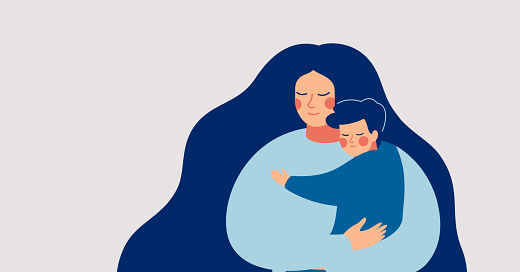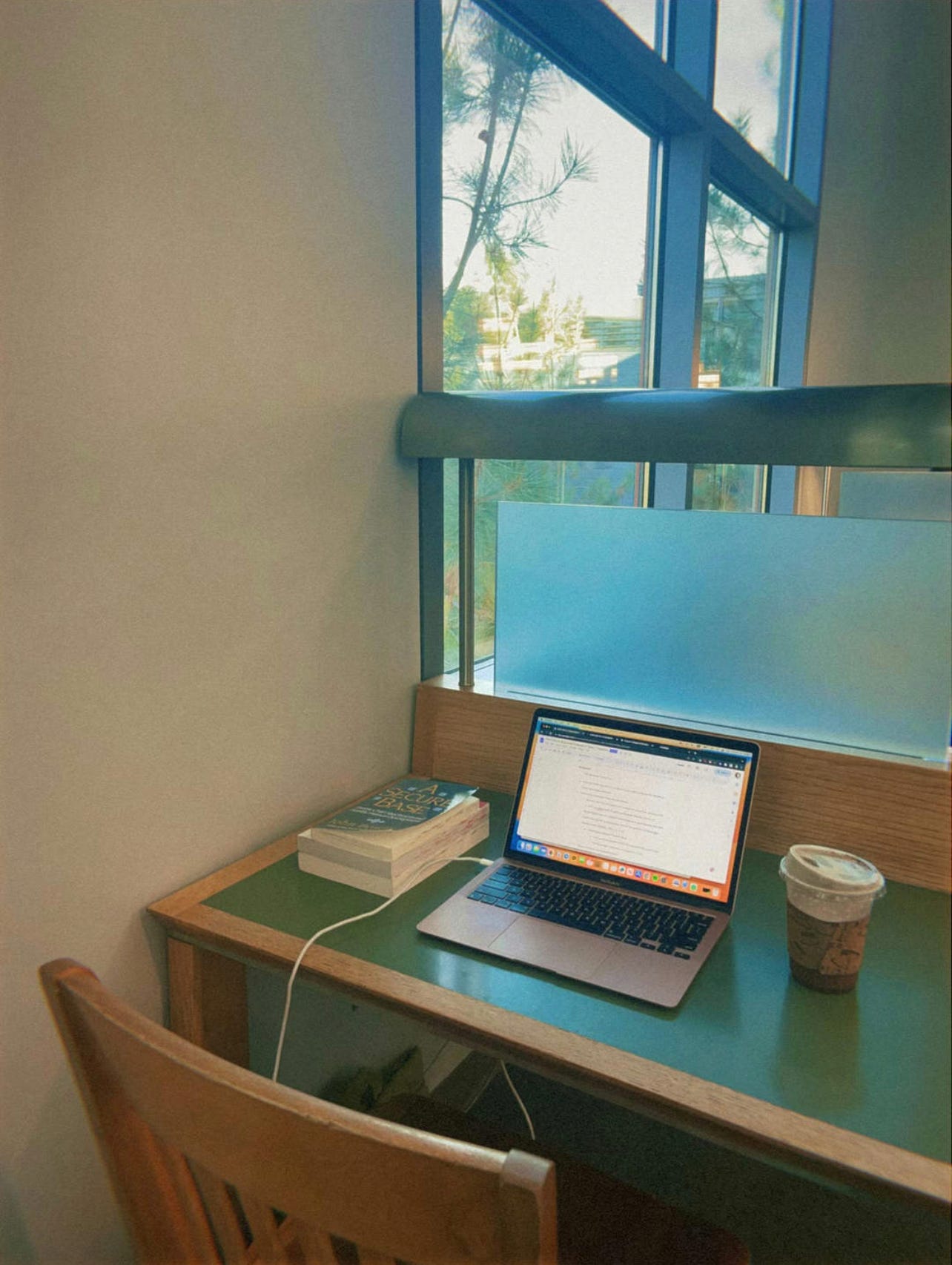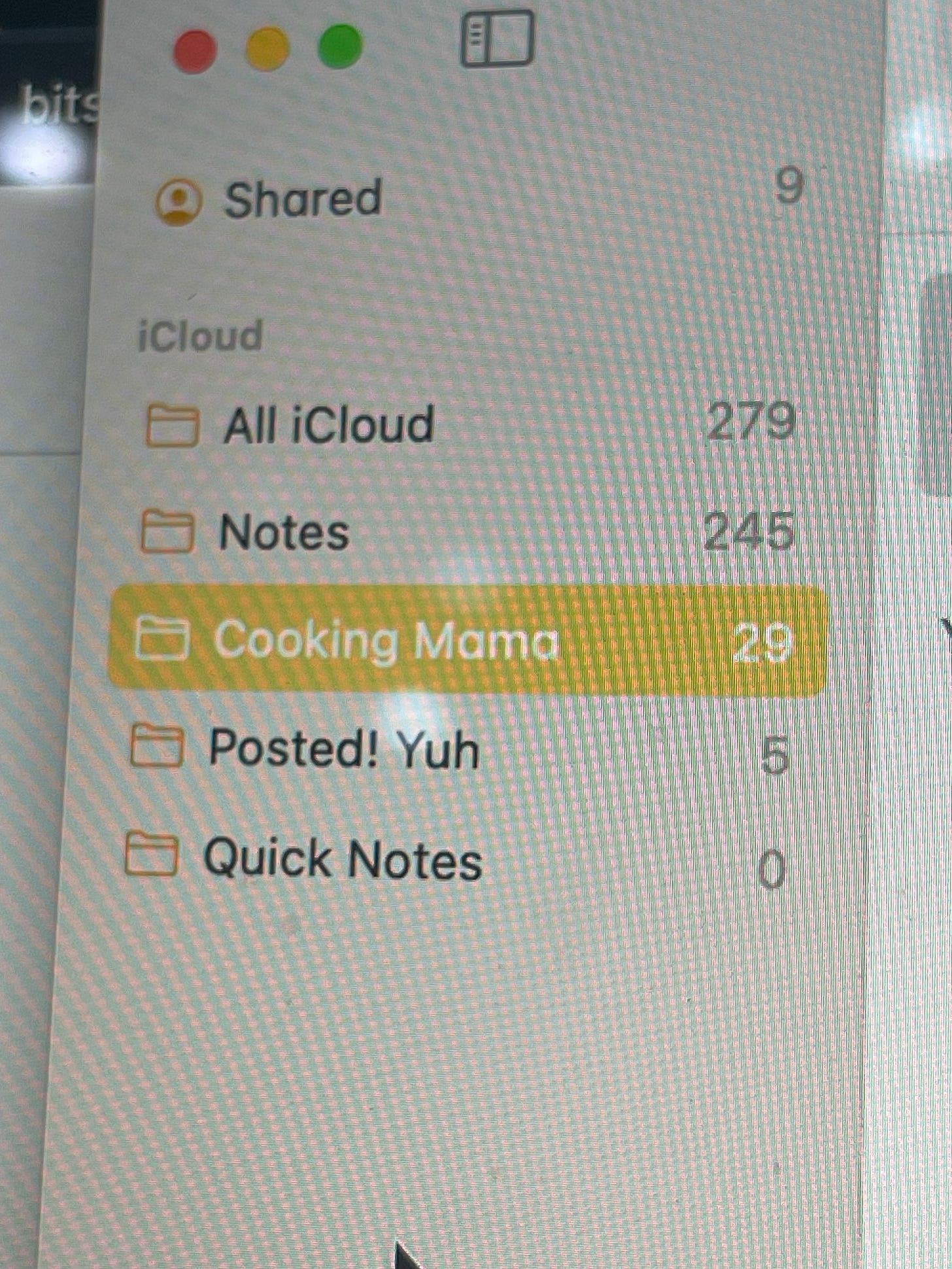This month, I submitted a research paper on the Attachment Theory for one of my classes. If you haven’t heard of the Attachment Theory, it’s a theory coined by John Bowlby, and it emphasizes the importance of the bond between the child and caregiver in early development as this will influence the child’s relationships throughout their lifetime. The main point is that infants or children require care from their caregivers— it’s a survival instinct and need. If this is disrupted by stressors internally or externally, it triggers their attachment behavioral system to try to bring themselves back to their equilibrium of secureness.
There are ample resources about this theory online and in books; a majority of my research derived from A Secure Base: Parent-Child Attachment and Healthy Human Development and Attached: The New Science of Adult Attachment and How It Can Help You Find—and Keep—Love (if you’d like to read up on it). For my paper, I chose to focus on how adults, who are not all born equally into secure environments, can find fulfilling relationships.
Here’s what you need to know:
It comes from childhood and your bond with your primary caregiver. The role of the primary caregiver will determine your attachment style.
If the primary caregiver or parent was also not brought up in a secure household, this will transfer to their children.
The three Attachment Types
Anxious Attachment: results from rejection in childhood. They desire closeness and intimacy in relationships and fear their feelings will never be reciprocated.
Avoidant Attachment: results from anger and confusion from their primary caregiver in childhood. They idealize independence and space in relationships and fear commitment; they keep their feelings at bay by avoiding closeness.
Secure Attachment: results from assurance of safety and support in childhood. They are not afraid of intimacy and are effective communicators. They are able to regulate their attachment behavioral system.
Change in attachment styles is possible and it can be done through the formation of new romantic relationships
If you don’t have a secure attachment style, try to find someone who does so you can learn from them
If that’s not ideal (as research has found more anxious and avoidant types in the dating pool), here are some things to consider to find a secure base:
Determine if they’re emotionally available (are they seeking intimacy and closeness?).
Determine how much value they give being in a relationship (how serious are they?).
Look for various signs of their attachment style.
Determine how effective their communication is
Read between the lines (listen and look for what they are not saying or doing).
Final thoughts
I’d been hyperfixated on this topic for a while. I found that it’s a great starting point to start understanding yourself, but just don’t overdo it to the point of over-pathologizing. Just because you have X attachment style does not mean that’s all you are— studies show that attachment styles can change. Through practice and loving others, you can learn what is healthy for you in a relationship and develop your own secure base.
October Recap + Recs
I read six books this month (Three of them were for my research paper)
The Fantasy Bond: Structure of Psychological Defenses by Robert W. Firestone (3/5)
Attached: The New Science of Adult Attachment and How It Can Help You Find—and Keep—Love by Amir Lavine (2/5 lol this rating is what prompted this post)
A Secure Base: Parent-Child Attachment and Healthy Human Development by John Bowlby (4/5)
Letters to a Young Poet by Rainer Rilke (5/5)
Bluets by Maggie Nelson (4/5)
Reward System by Jem Calder (3/5)
Currently reading Sula by Toni Morrison & The Creative Act: A Way of Being by Rick Rubin
Had this bawwwmmm Bahn Mi Chao dish, seafood ceviche, and mocha egg coffee
Played a lot with writing this month lol
Obsessing over Dimensional- a personality app. SO cool! You can also invite friends & compare traits :) I thought I really knew my friends until this app LOL
Here are my six archetypes:
Individualist (Values - values freedom, pleasure & novelty)
The Advocate - INFJ (Identity - sensitive & complex)
The Voyager - IRCA (Love - independent & self-assured)
Planner - SC (Work - even-tempered & stable)
Designer (Career - creative & curious)
Earth (Spirit - grounded & realistic)
Recommending this timely essay by Bits of Wonder about the capacity of our heart
Treated myself to lots of cafe shops this month!
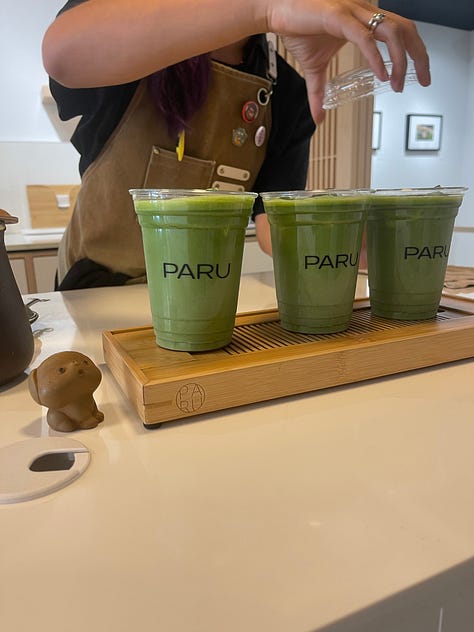
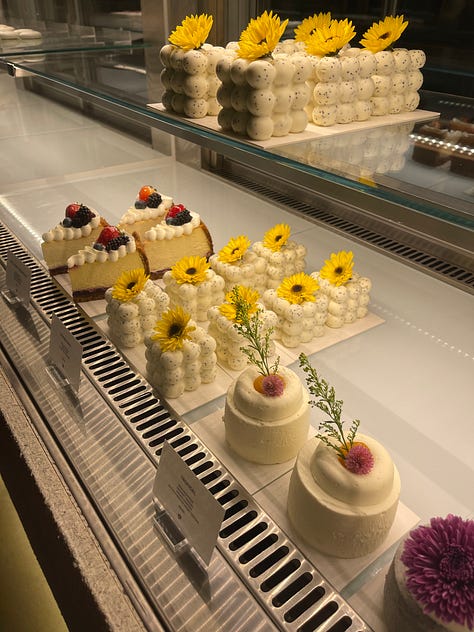
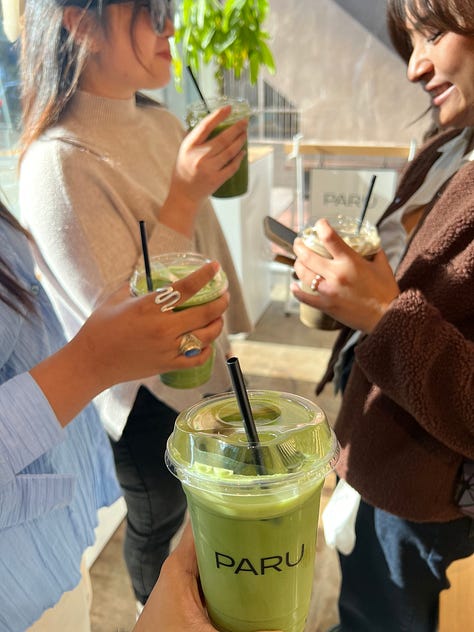
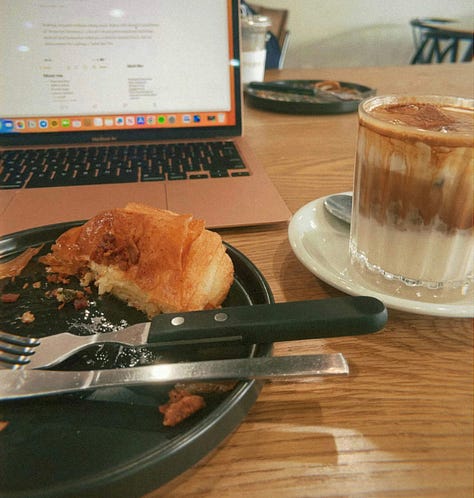
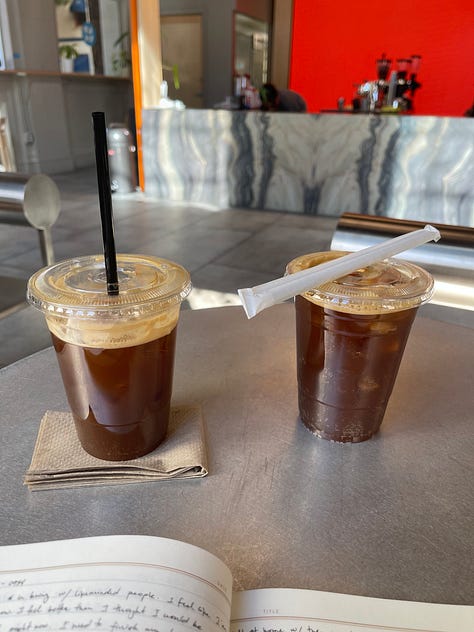
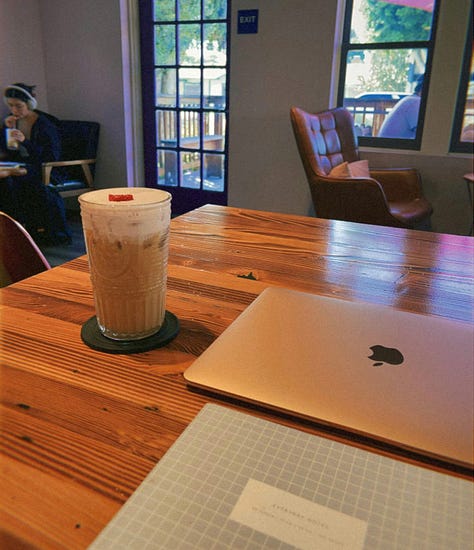
Lastly, my fav playlist I made from this month :)
That’s all folks!
Heaven

